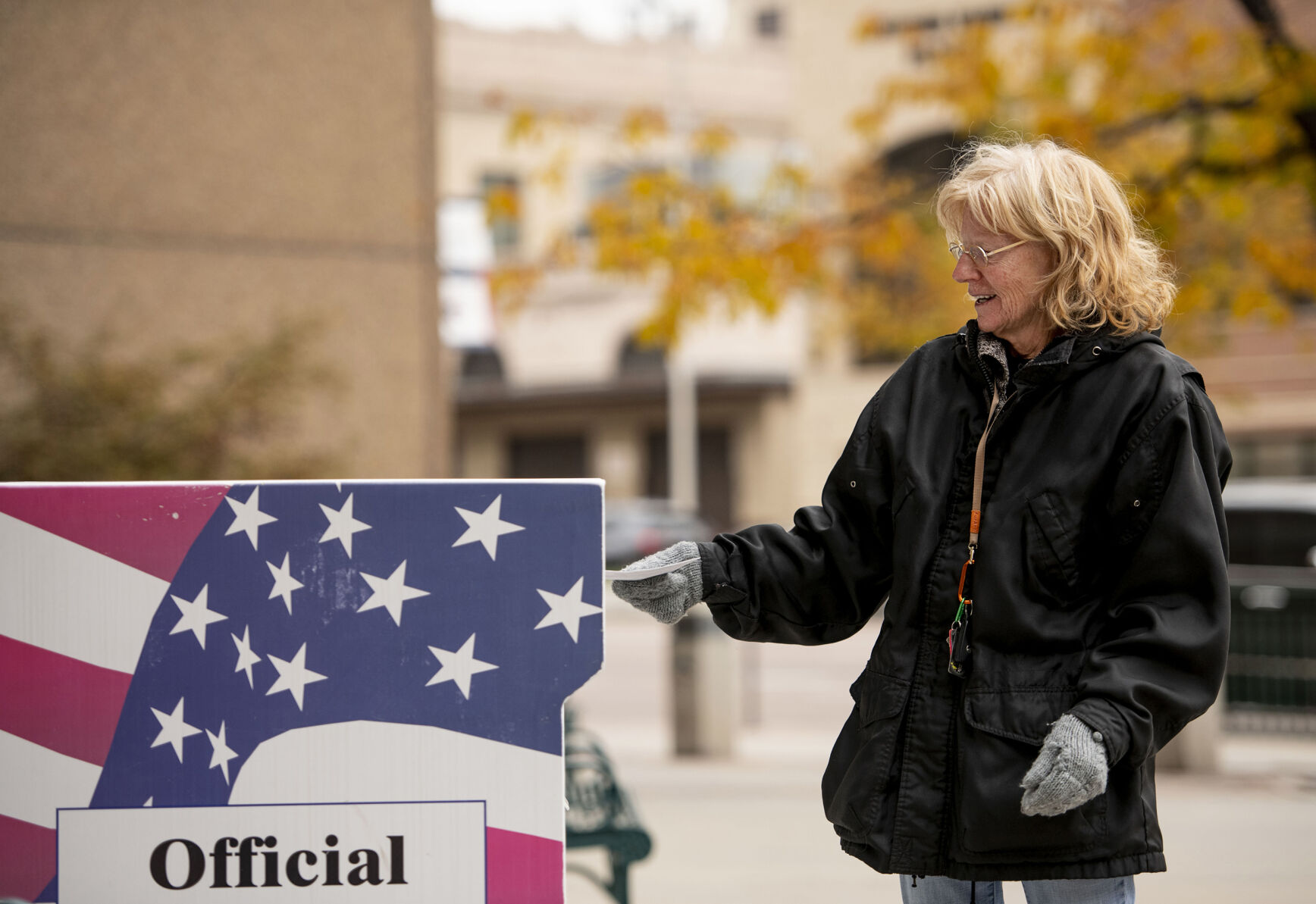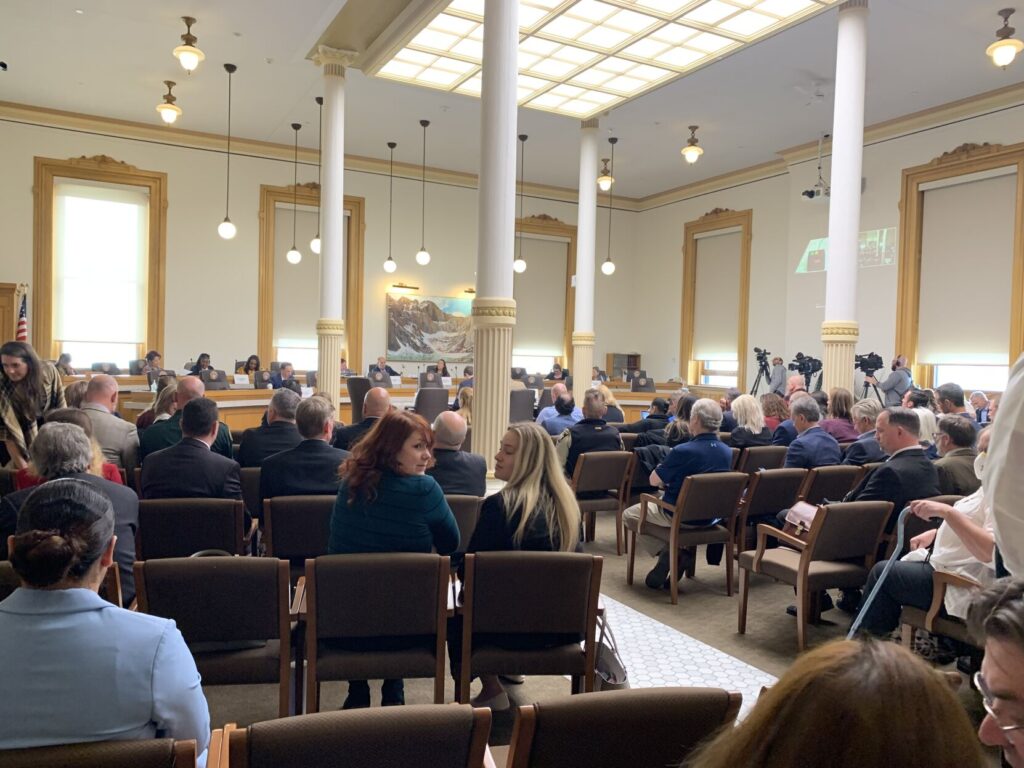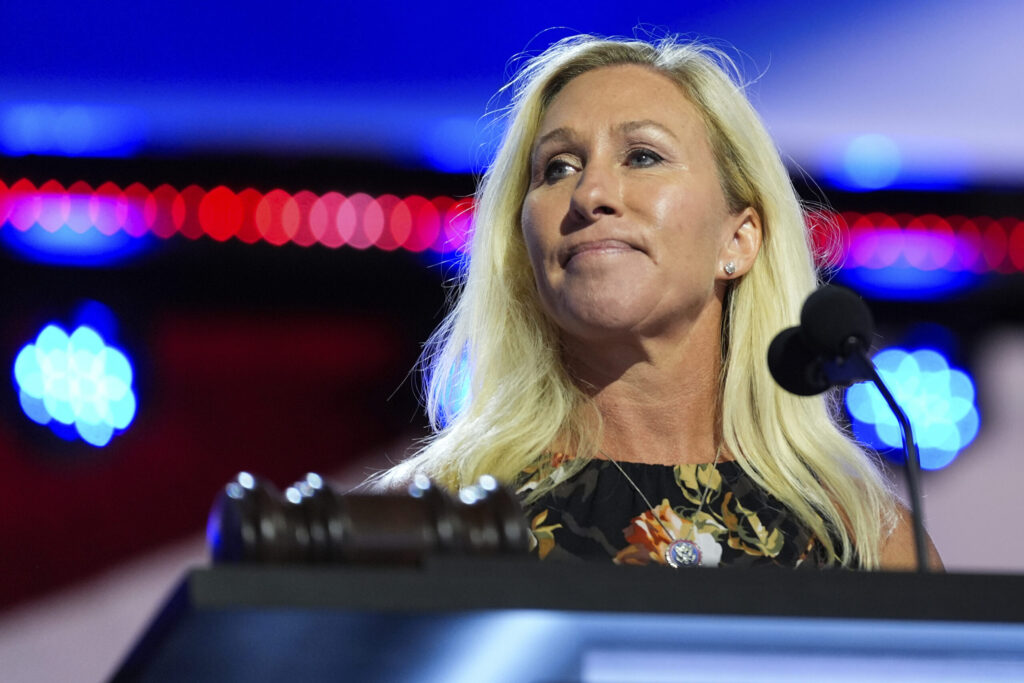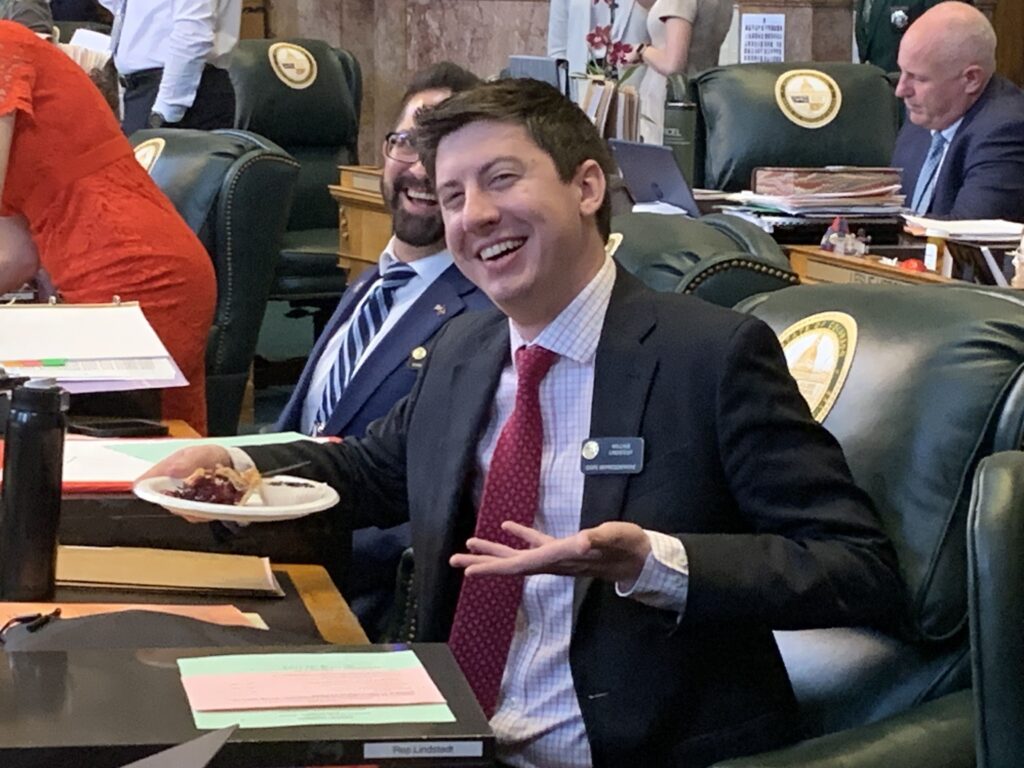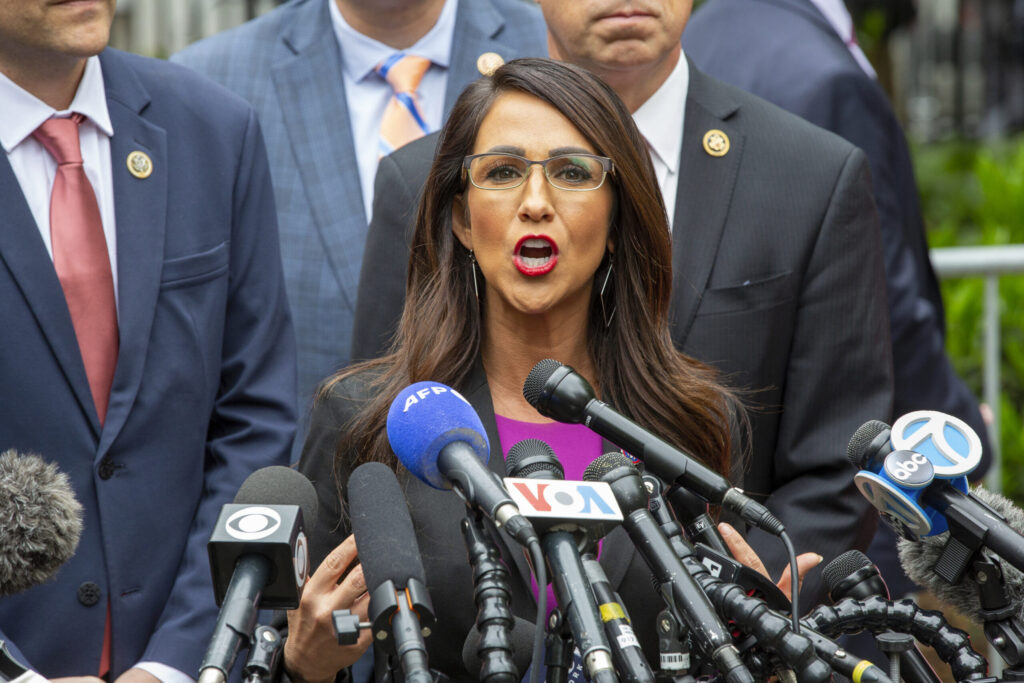Colorado lawmakers advance election bills, reject measure eliminating vote by mail
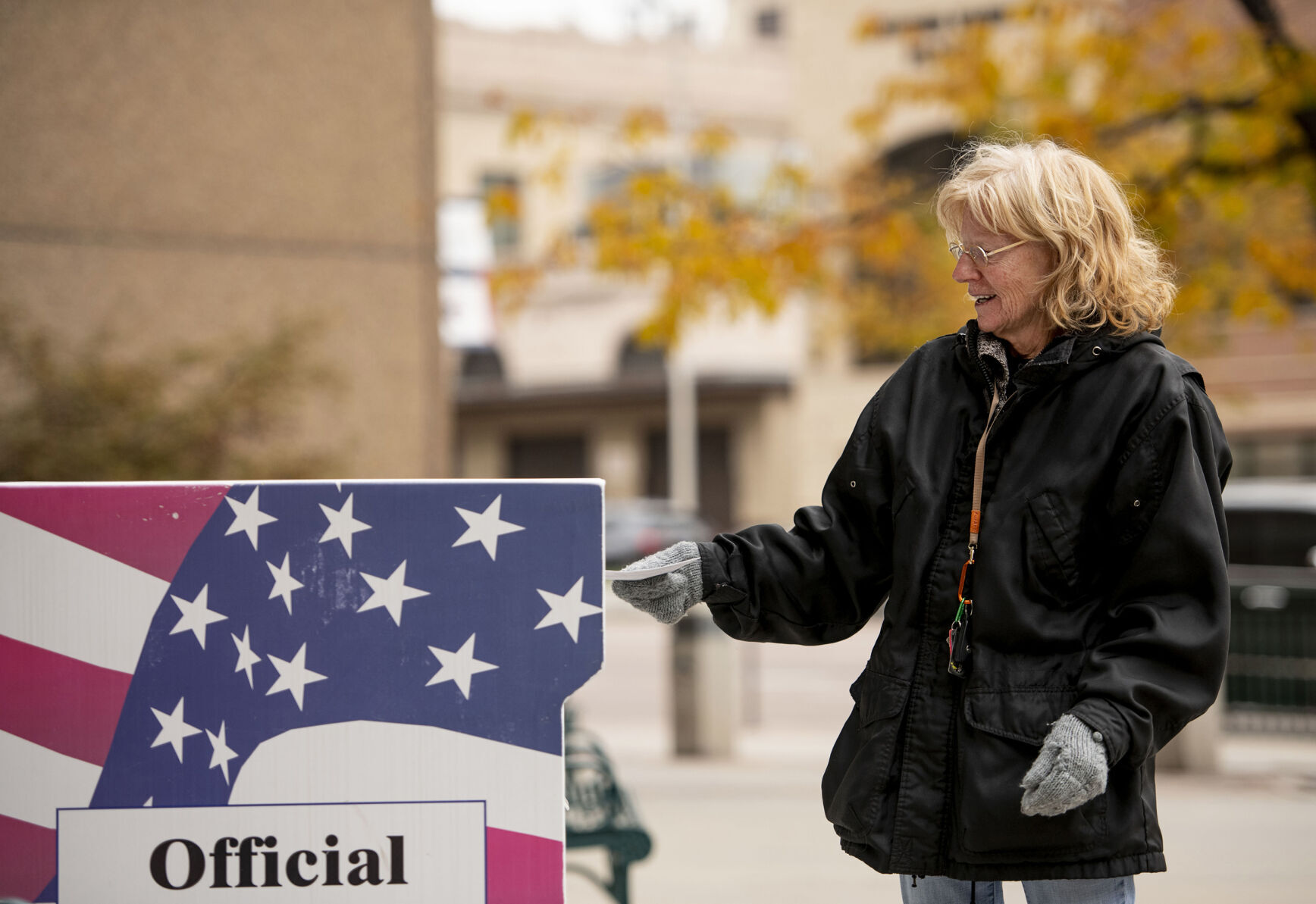
Colorado House and Senate committees this week worked through a slate of election bills intended to tighten internal security controls, ban firearms at polling places, help residents who lost homes in last year’s Boulder County fires deal with voter registration issues, or eliminate the state’s mail-in-voting system.
The House State, Civic, Military and Veterans Affairs Committee on Monday killed a bill sponsored by Rep. Ron Hanks, R-Cañon City, that would have eliminated the state’s mail-in voting system, considered by Democrats as part of Colorado’s “gold standard” for election security.
Under House Bill 1204, only individuals who are overseas or are otherwise out of state, are hospitalized or in a nursing home or blind would be allowed to vote by mail. In order to accommodate a return to in-person voting, the bill would have required county clerks to set up an “adequate” number of polling places in every precinct.
The bill also would have required hand-counting of all ballots and for results to be complete within 24 hours of the polls closing. That hand count would have cost counties $12.3 million statewide, according to the bill’s fiscal analysis.
Rep. Rod Bockenfeld, R-Watkins, described the bill as a solution in search of a problem, and asked Hanks if his intent was to get the bill out of the committee and accept amendments, or whether his feet were set in concrete.
Hanks also said that people are already concerned about election fraud and that and his intent is to get people talking.
“We will not get comprehensive” election reform through the House, he said, adding, “The truth isn’t selling.” He predicted he would not get support even from his own House colleagues on the bill.
Rep. Tracey Burnett, D-Boulder, who has been an election judge, said it’s already hard enough to get people to spend a full day, working as election judges, and the bill would require thousands more just to handle those elections. Hanks acknowledged that, but said the citizenry he’s speaking to is ready to participate in the election process.
Not surprisingly, Colorado Secretary of State’s Office opposed the bill.
County clerks also testified against the measure, including Hanks’ county election official, Fremont County Clerk and Recorder Justin Grantham, who testified on behalf of the Colorado County Clerks Association. The bill would decentralize polling locations, he said.
“People would be confused about where to go,” Grantham said.
In addition, people who work in other counties and don’t get off work until 5 p.m. would struggle to get to a polling site before the polls close at 7 p.m., he said, noting about 90% of Coloradans vote by mail.
House Bill 1204 died on a 2-9 vote that included a “no” from two of the four committee Republicans.
Meanwhile, three election bills, all sponsored by Senate Democrats, won approval on Tuesday from the Senate State, Veterans and Military Affairs Committee.
Senate Bill 153 tightens up internal controls within county clerks’ offices in the wake of alleged security breaches in Mesa and Elbert counties, where county clerks allegedly made unauthorized copies of computer equipment. Mesa County Clerk and Recorder Tina Peters has been indicated by a grand jury for her role in that alleged security breach. She denies all allegations. Dallas Schroeder, the Elbert County Clerk and Recorder, also faces a lawsuit from Secretary of State Jena Griswold, who alleged a similar breach in his county.
Senate President Steve Fenberg, D-Boulder, said the bill would ensure proper security within election systems and lead people to have more confidence in that system. The bill requires basic security protocols used in state agencies and businesses, including 24/7 video surveillance and authorized keycard access to equipment. Additional training for designated election officials, primarily county clerks and their elections staff, where applicable, would also be ramped up under the bill.
Under the proposal, those who refuse to do the training, as Peters is alleged to have done, would be barred from conducting elections.
The bill, which is backed by the Colorado County Clerks Association and the Secretary of State’s Office, also bars designated election officials from spreading “misinformation” around elections, which Fenberg said undermines voter confidence. The bill doesn’t define “misinformation.” It also doesn’t specify who decides if a claim is false.
Deputy Secretary of State Christopher Beall told the committee that the state can always do more to innovate, respond to new challenges and strengthen security.
Since 2020, Beall said, his office has responded to previously unheard-of efforts that undermine the security of elections. Elections officials, some elected to office, have compromised voting equipment in an effort to prove unfounded election conspiracy theories, he said.
No one testified against the bill, which passed on a party-line 3-2 vote and now heads to the Senate Appropriations Committee and a Friday review of its cost, which includes a $500,000 grant program for small counties to pay for the enhanced security functions.
Meanwhile, a bill to allow residents affected by the December Boulder County fires to retain their addresses for voter registration purposes also won approval. Senate Bill 152, sponsored by Fenberg and Sen. Sonya Jaquez Lewis, D-Longmont, and backed by Boulder County Clerk and Recorder Molly Fitzpatrick, would allow those displaced by the fire and living temporarily elsewhere to keep their voter registration at the homes destroyed or damaged in the fire. Current state law prohibits voters from using vacant lots as home addresses. The bill offers a temporary change that applies to homes destroyed in a natural disaster, such as the fire, so long as the voter intends to rebuild or return once the home is rendered habitable.
Some families are already on their third move since the fire, and may struggle to keep up their voter registration information, Jaquez Lewis told the committee.
SB 152 also faced no opposition and passed unanimously.
Also sponsored by Jaquez Lewis and Sen. Rhonda Fields, D-Aurora, the final bill, House Bill 1086, also known as the Vote Without Fear Act, would ban people from openly carrying weapons at polling places or within 100 feet of ballot drop boxes. The threat of armed violence at a polling place could influence elections, Jaquez Lewis told the committee.
SB 152 is backed by gun control advocates, such as Colorado Ceasefire, Colorado Gun Owners for Safety, and Moms Demand Action. Eileen McCarron of Colorado Ceasefire said no one should be frightened of going to a ballot box, which she was the case during the civil rights era.
“Citizens should be free to cast ballots without intimidation,” she said.
During the 2020 election, two men attempted to film voters dropping off ballots at an Arapahoe County government office in Littleton. Arapahoe County officials called the police but the two men, one of whom had a gun and wore a “tactical” vest, were not cited, according to an Englewood Herald story.
The bill drew a handful of opponents, primarily the Firearms Coalition of Colorado and Rocky Mountain Gun Owners. Robert Edmiston of the Firearms Coalition, which is an affiliate of the National Rifle Association, told the committee that the mere fact that someone is carrying a weapon should not be a cause for alarm. He asked the committee to amend the bill to ban openly carrying for people who are “loitering.” The committee declined to make the change.
HB 1086 passed on a party-line vote and now heads to the full Senate.
